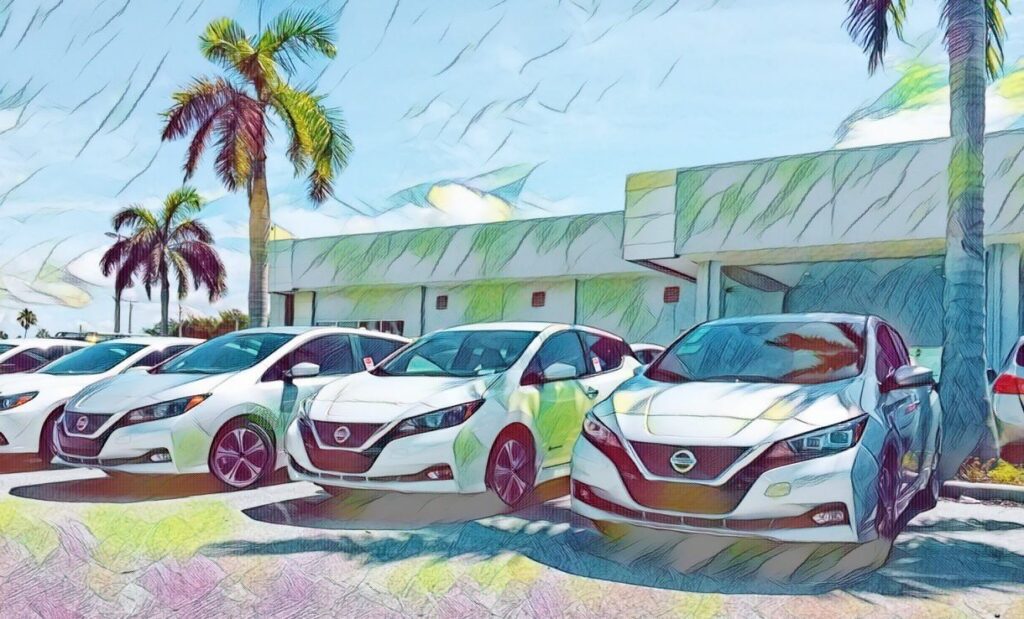Can Nissan Save Itself With LFP Batteries?
A Look at the Company’s Current Situation
Nissan, one of the biggest names in the automotive industry, has been facing significant challenges in recent years. Despite being a pioneer in electric vehicles (EVs) with the introduction of the Leaf in 2010, the company has been struggling to keep up with the rapid pace of change in the industry. Falling sales, declining profits, and increased competition from established players like Tesla and emerging startups have put pressure on Nissan’s bottom line. The company’s response has been to revamp its product lineup, including a focus on more affordable electric vehicles.
Enter LFP Batteries
To address the issue of range anxiety and affordability, Nissan has turned to lithium iron phosphate (LFP) batteries. LFP batteries are a type of battery chemistry that uses iron and phosphate instead of cobalt, nickel, and lithium. This makes them more affordable and safer, while also offering a longer cycle life. Nissan has chosen to use LFP batteries in its upcoming affordable electric vehicle, the Nissan Altima EV.
Benefits of LFP Batteries
So, what’s the big deal about LFP batteries? Here are some of the key benefits:
*
Cost-effective
: LFP batteries are significantly cheaper to produce than traditional lithium-ion batteries, making them more viable for mass-market adoption.
*
Safer
: LFP batteries are less likely to catch fire or overheheat, reducing the risk of accidents and making them a safer choice for vehicle manufacturers.
*
Longer lifespan
: LFP batteries can last for up to 20,000 charge cycles, or around 10-15 years, compared to lithium-ion batteries which typically have a lifespan of around 5-7 years.
*
Better performance in extreme temperatures
: LFP batteries perform well in temperatures ranging from -20°C to 40°C (-4°F to 104°F), making them well-suited for use in vehicles that operate in diverse climates.
Nissan’s Plans for the Future
Nissan’s decision to use LFP batteries is a significant move towards achieving its goal of making EVs more accessible to a wider audience. The company plans to introduce the Altima EV, equipped with LFP batteries, to the market in the next few years. This new model is expected to compete directly with other affordable electric vehicles, such as the Hyundai Kona Electric and the Chevrolet Bolt.
Conclusion
Can Nissan save itself with LFP batteries? The answer is likely yes. By leveraging the benefits of LFP batteries, Nissan can offer an affordable and reliable electric vehicle that appeals to a broader audience. While the competition is fierce, Nissan’s decision to adopt LFP batteries is a step in the right direction towards reducing its reliance on traditional battery chemistries and capitalizing on the growing demand for electric vehicles.
FAQs
Q: What are LFP batteries?
A: LFP batteries are a type of battery chemistry that uses iron and phosphate instead of cobalt, nickel, and lithium.
Q: Are LFP batteries as efficient as lithium-ion batteries?
A: While LFP batteries may not have the same level of energy density as lithium-ion batteries, they offer advantages in terms of cost and safety.
Q: Will LFP batteries be used in other Nissan models?
A: Nissan plans to use LFP batteries in its upcoming affordable electric vehicle, the Altima EV, but it remains to be seen whether this technology will be adopted for other models.
Q: How do LFP batteries compare to other battery chemistries?
A: LFP batteries are generally considered to be less expensive and safer than traditional lithium-ion batteries, while also offering a longer cycle life. However, other battery chemistries, such as solid-state batteries, may offer even better performance and efficiency in the future.




_2.png?w=150&resize=150,150&ssl=1)


